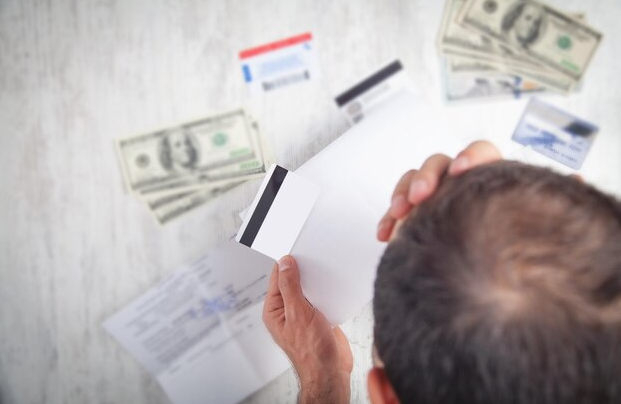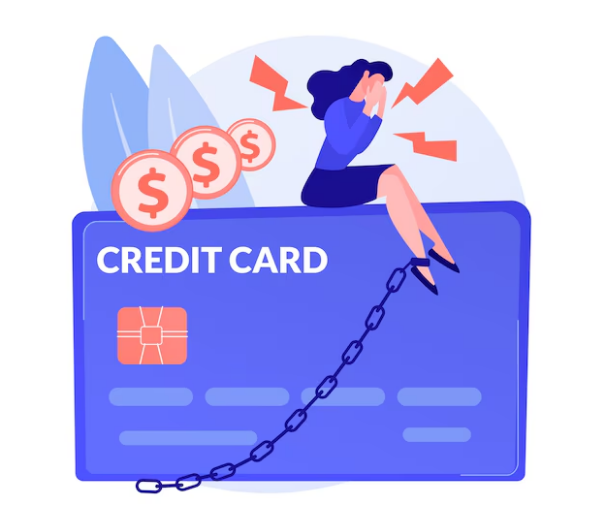During a recession, managing credit card debt can become increasingly challenging for many Americans. Economic downturns often lead to job losses, reduced income, and financial instability, making it difficult to keep up with credit card payments. However, with careful planning and proactive strategies, it’s possible to navigate these tough times without falling into deeper debt.
Understanding how to manage credit cards and debt during a recession is crucial for maintaining financial stability. By taking steps to reduce debt, prioritize payments, and protect your credit score, you can emerge from a recession with your finances intact. This article explores key strategies for managing credit card debt during an economic downturn.
Prioritizing debt repayment

Reducing expenses and budgeting
During a recession, it’s important to tighten your budget and reduce unnecessary expenses. Cutting back on non-essential spending can free up more money to put toward debt repayment, helping you stay on top of your financial obligations. Start by reviewing your monthly expenses and identifying areas where you can cut back.
This might include dining out less, canceling subscription services, or finding ways to save on utilities. Every dollar you save can be redirected toward paying down your credit card debt, reducing the overall amount of interest you’ll pay over time.
Creating a budget that reflects your current financial situation is also crucial. A budget helps you keep track of your income and expenses, ensuring that you prioritize debt repayment while still covering essential needs like housing, food, and transportation. During a recession, it’s especially important to be realistic about your income and to adjust your budget as needed to reflect any changes in your financial situation.
If your income has been significantly reduced, you may need to make more drastic cuts to your budget or consider finding additional sources of income, such as a part-time job or freelance work. While this can be challenging during a recession, every little bit helps in reducing your debt and maintaining financial stability.
Negotiating with creditors
If you’re struggling to keep up with credit card payments, it’s important to communicate with your creditors as soon as possible. Many credit card companies offer hardship programs that can provide temporary relief during financial difficulties, such as a recession.
Contact your creditors and explain your situation. Be honest about your financial challenges and ask if they offer any options for reducing your monthly payments, lowering your interest rate, or temporarily deferring payments. Some creditors may be willing to work with you to create a more manageable repayment plan, especially if you’ve been a responsible borrower in the past.
It’s also worth exploring debt consolidation or refinancing options, which can help you combine multiple debts into a single, lower-interest loan. This can simplify your payments and reduce the amount of interest you pay over time. However, it’s important to carefully consider the terms of any consolidation loan and ensure that it’s a good fit for your financial situation.
If you’re unable to negotiate more favorable terms with your creditors, you might consider working with a credit counseling agency. These agencies can help you create a debt management plan and negotiate with creditors on your behalf. However, be sure to choose a reputable agency that offers free or low-cost services, as there are many scams targeting people in financial distress.
Protecting your credit score
Maintaining a good credit score during a recession can be challenging, especially if you’re struggling to keep up with payments. However, your credit score is an important financial asset that can affect your ability to secure loans, rent an apartment, or even get a job in the future.
To protect your credit score during a recession, it’s essential to prioritize on-time payments. Late payments can have a significant negative impact on your score, so make sure to pay at least the minimum amount due on all your accounts each month. If you’re unable to make a payment, contact your creditor as soon as possible to discuss your options.
Another way to protect your credit score is to avoid taking on new debt during a recession. Applying for new credit cards or loans can result in hard inquiries on your credit report, which can lower your score. Additionally, taking on more debt can increase your debt-to-income ratio, which is another factor that can negatively impact your credit score.
If you’re considering closing any credit card accounts, think carefully before doing so. Closing an account can reduce your available credit and increase your credit utilization ratio, which can lower your credit score. If you no longer wish to use a particular card, consider keeping the account open and simply not using it, rather than closing it entirely.
Staying financially resilient during a recession
Navigating credit card debt during a recession requires a combination of careful planning, proactive strategies, and a commitment to financial discipline. By prioritizing debt repayment, reducing expenses, negotiating with creditors, protecting your credit score, and building an emergency fund, you can manage your debt more effectively and maintain financial stability during challenging economic times.
While a recession can create significant financial stress, taking these steps can help you stay in control of your finances and avoid falling into deeper debt. Remember that it’s important to stay informed about your financial situation and to seek help if needed, whether through credit counseling, financial education, or support from friends and family. With the right approach, you can weather the storm and emerge from a recession with your finances intact.






